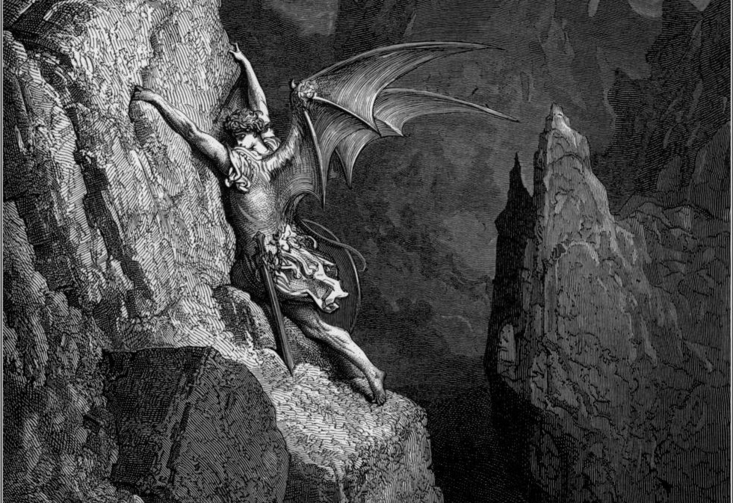December 22 / Third Saturday of Advent
He has scattered the proud in the thoughts of their hearts. ~ Luke 1:51
PEWSAGL. This nonsense word is the mnemonic, or memory device, that I created for the seven deadly sins (pride, envy, wrath, sloth, avarice, gluttony, lust) during my high school study of Chaucer, and it still occupies space in my brain from that time. (One might legitimately question what genuinely important facts are crowded out by its stubborn presence.) Of these seven offenses, the deadliest is pride, or excessive self-regard. The Greek word for pride that Luke uses in the Magnificat, hyperephania, is defined in my Greek-English lexicon as “a state of undue sense of one’s importance bordering on insolence.” Pride happens when we put too much stock in our own intelligence; when we follow the gospel of self-determination; when we trust not in the promises and plans of God, but in “the thoughts of our hearts.” To those afflicted by pride—and who among us is not? —obedience to God becomes anathema. In Book One of John Milton’s epic poem, Paradise Lost, the diabolical Lucifer—cast out of heaven for the sin of pride, utterly unchastened by his banishment—thumbs his nose at God in a long and self-justifying diatribe, concluding: “Better to reign in Hell, than serve in Heav’n.” Here is the essence of pride: the refusal to bend the knee to a greater power, the self-assurance that our way is the right way. The 20th-century Anglican theologian Austin Farrer prayed, “Oh God, save me from myself, save me from myself... Teach me to stand out of my own light, and let your daylight shine.” In these final days of Advent, may we direct the thoughts of our hearts not towards self, but towards Christ.
Lord of heaven and earth, strip me of my prideful thoughts, and grant me the humility to worship and love you with all my heart.Amen.









Yes! You are absolutely right. Our way is not always right way but when we starts something we always think it is right way. We only realize when we fail. Then we think this way was not right. I am going to enable cookies in chrome and save this page in my bookmarks. I will viit this magazine regularly.